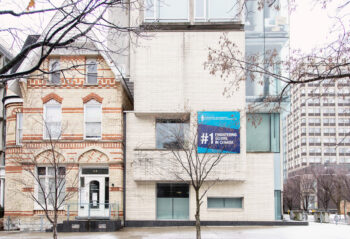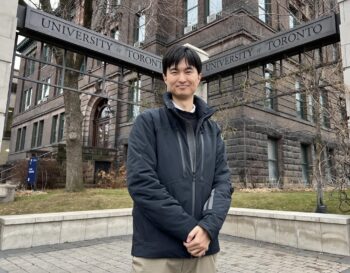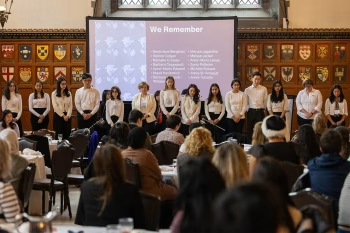June 26, 2009
On May 27, 2009 the Faculty of Applied Science and Engineering announced the creation of a new Centre for Global Engineering (CGEN) that will prepare graduates for a global workplace and direct research towards international challenges.
The new Centre will play a key role in both the education and research mission of the Faculty by promoting interdepartmental and interdivisional research and other scholarly activities related to Engineering in a global environment.
CGEN was among the recommendations of the Dean’s Task Force on Globalization and Engineering, which was established in early 2008 to consider how the Faculty’s education and research missions should take into account globalization trends and challenges.
The Centre will include a Director, a new academic position Professor, Globalization, affiliated faculty members, along with part-time administrative support. ProfessorYu-Ling Cheng, of the Department of Chemical Engineering & Applied Chemistry will begin a three-year appointment as Director, and Murray Metcalfe (MIE 7T7) began the appointment as Professor, Globalization in April.
“CGEN will be a community of scholars who share an interest in global engineering issues — a mechanism for exchanging ideas and sharing best practices that will potentially influence research directions to increase alignment with global challenges, as well as enhance the global impact of engineering research,” said Dean Cristina Amon.
The Task Force defined global engineering to include international collaboration and competition with respect to engineering work; the role of sustainability and environmental considerations and global energy analysis in engineering decisions; and the role of technology and engineering in international development and addressing the needs of the world’s poorest citizens. CGEN will work in each of these areas.
The educational goals for the Centre include offering courses and organizing a speaker series to enhance the global experience for Engineering students.
Professor Metcalfe teaches a course Innovative Technologies and Organizations in Global Energy Systems, which will be offered this fall as APS 510 and may become a core or elective course for a future Globalization minor or graduate certificate program in Global Engineering. Additional courses with a global emphasis are being planned.
The Task Force organized a preliminary speaker series this past spring semester, including internationally renowned speakers from MIT and U of T. CGEN will continue to recruit top global leaders for the speaker series each semester.
Another mandate for CGEN includes building partnerships within and also outside U of T to provide opportunities for students to travel and learn abroad, as well as embrace the knowledge and skills of the international community to effectively boost global innovation.
According to the Organization for Economic Co-operation and Development countries benefit from the inflow of talented students and scholars. For receiving countries, the inflow of talent has positive effects relating to knowledge flow, including the possibility of increased R&D and economic activity owing to the availability of additional skilled professionals, improved knowledge flow, and collaboration with sending countries. Mobility helps link domestic firms to foreign knowledge and stimulates spillovers from foreign R&D to local R&D units and the economy at large.
Research activities within the Faculty of Applied Science & Engineering either explicitly or implicitly address international development goals. Through CGEN the Faculty will open the door for formal dialogue and work within Engineering at U of T.
“It is our hope the Centre will be the face of global engineering to both internal and external communities. We hope students will see it as the focal point of the Faculty’s educational initiatives related to global engineering. We anticipate the presence of CGEN will identify to potential external partners the research and educational activities on global issues that exist within the Faculty, and will thus lead to collaborative opportunities,” said Dean Amon.
The research agenda for CGEN may include:
- Discipline specific research relevant to global issues, such as renewable energy for rural settings, water purification, cost reduction of healthcare technologies, communications technologies for developing countries, and international food engineering.
- Knowledge translation to enhance the global impact of engineering research, or translating best engineering practices into global applications; comparative engineering approaches across regions and types of organizations; incorporating location-specific constraints into engineering design.
- “Cradle-to-cradle” life cycle analysis; accounting for sustainability issues and energy consumption in engineering projects.
“The tremendous research strengths in the Faculty allow CGEN to further enhance and expand existing research efforts in highly impactful and visible ways,” says Cheng.



